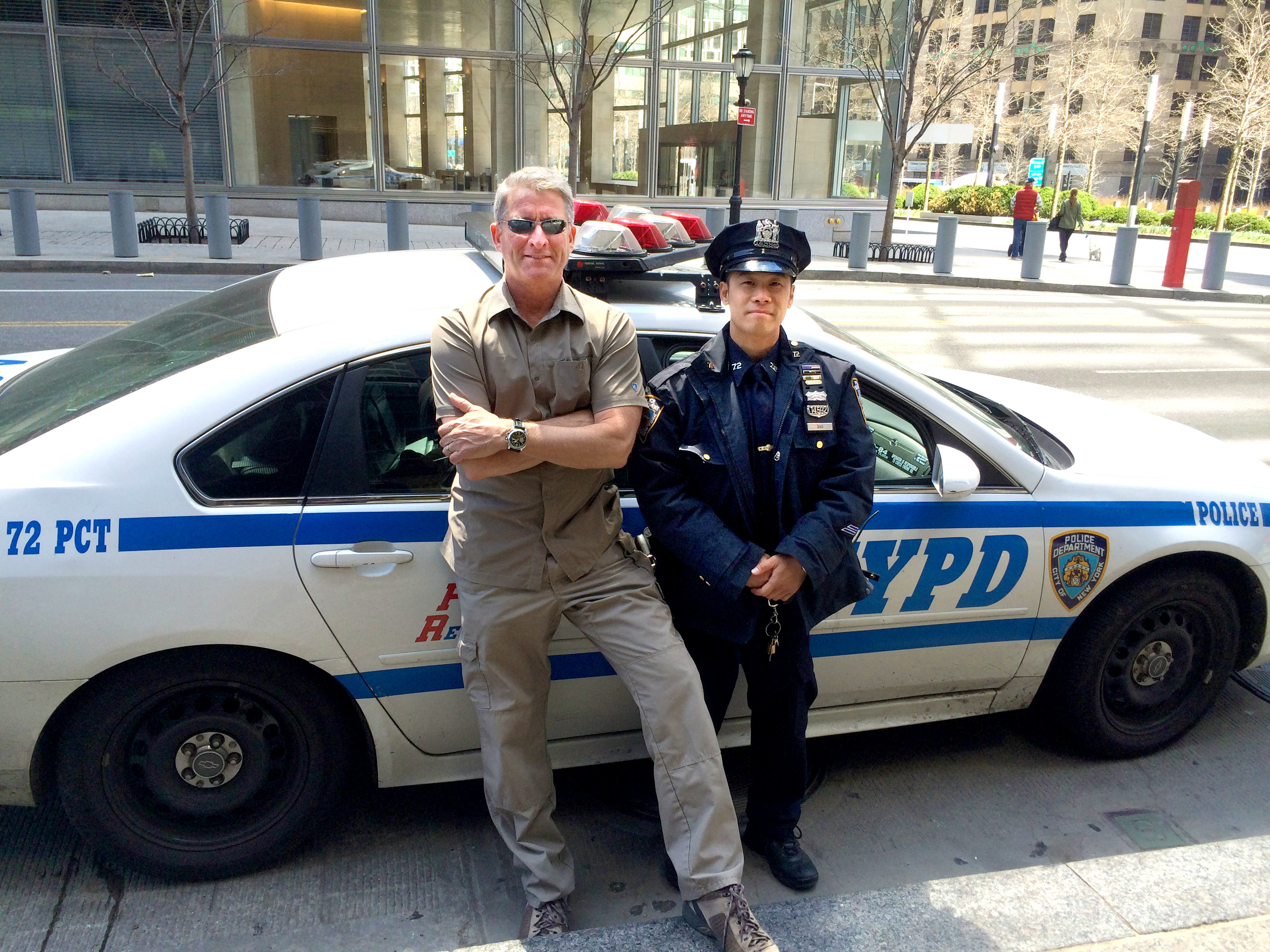Where are you right now? I’m in midtown Manhattan. Today [Friday, April 18], I spent the day with elected officials in Brooklyn, specifically with the district attorney, and later on with the presiding judge, George Grasso. Everyone throughout North America and around the world is struggling with making our criminal-justice system less punitive while also holding people accountable.
You’re going around the country and the world talking about harm reduction? Yes, the people I’m working with are the Open Society Foundations and the Drug Policy Alliance. There was a meeting on Wednesday, in Washington, of 200 police chiefs. U.S. Attorney Eric Holder was there, the director of the FBI was there. That night I flew up to Albany. They’ve got all the groups necessary to start a LEAD (Law Enforcement Assistant Diversion)-type program there. I presented to them for a couple hours on lessons learned [in Seattle]. And we’re leaving Monday for Tbilisi, Georgia. They have, some argue, the most draconian and oppressive drug laws in all of Europe. But they’ve got some very progressive people—very forward-minded, very pro-human rights, and they’ve been working hard to become more aligned with the West. I’ll be addressing parliament.
Are there any misconceptions about harm reduction? One opinion is that it’s code for legalization of all drugs. And it’s not. It’s the same philosophy that any other profession tries to bring to people they serve. One example is medicine. You don’t put everyone in the emergency room. You try to analyze where the damage is, what is the harm the individual is causing to themselves and others. And then you try to mitigate that. We can’t expect people to detox just because we say, “If you don’t, you’re going to jail.” Because we’ve seen that doesn’t work.
Is it strange to be representing the Seattle law-enforcement approach when you’re no longer on the force? Initially, I’m usually announced as the chief, and then they quickly correct themselves.
Why did you decide to step down? I just didn’t think from what I was hearing and seeing that there would be much of a chance to contribute as much as possible within the present environment.
But you were ousted—given a choice of becoming a captain or retiring. Right; that gave me time to—what do they say in the Catholic church?—discern. So I discerned a lot.
Why do you think you were given that choice? I don’t know. I’ve moved on. Others have moved on. That doesn’t mean I’m going to throw my sucker in the dirt and just stand in the corner of the ballpark and not play ball. I’m going to try to stay involved one way or another.
What do you make of the discipline brouhaha that has gotten the mayor and your replacement in deep water? The mayor is still saying your administration approved a half-dozen discipline reversals. You said that never happened. Is somebody lying? The mayor wasn’t there. So he can only rely on what he’s being told. I did not approve them. You would have my signature if I approved them. Someone is not giving him the facts.
nshapiro@seattleweekly.com








